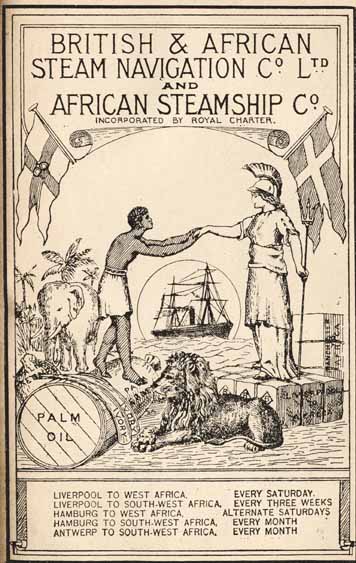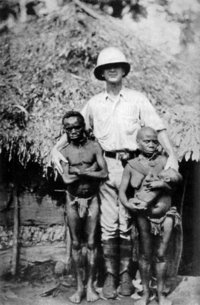 Left: Ama Ata Aidoo
Left: Ama Ata AidooThe morning came late, as usual after Mansa and her friends worked. In that moment before becoming fully conscious and realizing that she was alone in her bed, Mansa had a nagging feeling, as if just waking from a dream she could barely remember but with a sense that it was somehow important. As she stretched, she remembered last night and then it all came back.
She heard Furaha getting breakfast in the kitchen.
‘Is there any fruit?’
‘Yes, one papaya left,’ handing it to Mansa.
‘Where’s Masozi and Zuri?’
‘With the big men they danced with all night. And you did not leave with the Fante man?’
‘No.’
‘He is from your village?’
‘Yes. He is my brother. He came looking for me.’
‘But I thought you said that your family believed you were dead?’
‘I thought this, too.’……I am not sure of anything. There is always my family…like this morning’s dream barely remembered and soon forgotten…but now I remember everything.
‘He does not approve of what I do. He wants me to come home. He does not understand anything.’
‘What did he say?’
‘He said that he was hoping, if he found me, to find that all was well and that I would at least be married to a big man.’
‘What did you say?’
‘I said, why do you talk so badly about what I do? Do you not think this is better? Do you not think that I could be happy without marriage?’……I did not say what I know. I did not say that I know that marriage is not possible for me now. I did not say that I was happy to decide for myself. I did not say that I know that I would probably not have a child, or one who knows his father, or have a home, like my mother. I did not say that I often feel free from many things. I did not say that I fear my old age.
I did not have to say.
After a silence, Furaha said, ‘Maybe we should have stayed with Mother and taken up the sewing and cleaning. Maybe she will come to find me too, like your brother…and bring us both home.’
‘Your Mother was good to me, Furaha, and treated me as her daughter and your sister …and although she taught me the sewing and cleaning, like you, I knew at ten years old that if I could not stay in school in my own village, I was not going to stay anywhere that was not of my own choosing. You said then that you felt the same. Do you not remember how you begged me to take you with me when I left in the night?……Even though I promised my brother I would go home at Christmas, I cannot……He does not understand anything,’ Mansa said.
They sit together for a long time in compliant silence.





4 comments:
I really enjoyed reading the story through the eyes of Manasa. I think she left home bencause she did not want to live the traditional life od a villager. She was running away from the traditional role of a village woman. In the city she felt free, free from any traditional obligations. She was able to drink and dance with the men she choose to, and have the job she wanted to have. I also think that she just told her brother that she was going back ti get him to leave, but I din't think she will ever go back to the village.
Hi Wendy,
Very clever! I like the stance you took, and the independence, and the freedom of choice that you gave to Mansa and Furaha in choosing what they did NOT want to do. I may not have read the story closely enough (or it could be my age showing through), but I read into it that the girl(s) were turned out into the streets a year or so after Mansa left home, perhaps because she could no longer be supported by the woman /family who promised to teach her the domestic jobs (forgive me, I leant out my book, and therefore I am winging’ it here a bit). I also assumed that once she was working the streets, she no longer wished to go home, because her family would not understand her lifestyle and the way in which she supported herself. However, I MUCH prefer your version/interpretation. It is far more empowering and says that girls and women are allowed to make choices – for themselves, for their bodies, for their own lives – what a concept. “Compliant” silence speaks volumes about their decisions. Very refreshing dialog and overall read.
I absolutely love the direction you went with this story. Your choice of using so much dialogue was genius, quite in keeping with the African tradition. How interesting to see this story Mansa's point of view! I think it is wonderful how you develop her emotions from something like defiant to ultimately simple fear. Of course she would be afraid! And yet, she did make her own choice. I love how strong she is in this piece, how she stands by her choices even though they frighten her. After all, what was her option? To cook and clean for another family? Good for her! I admire the strength you give to Mansa in this piece. Would that we all could stand by such choices! This world would be so much better if our young men and women would take a que from Mansa and fly from pithy jobs like McDonalds cashiers. Even though her situation is upsetting now, I have every confidence that the Mansa you have created will find a better position for herself. That is what I admire most... the underlying hope that, because she can choose for herself, Mansa will one day find redemption.
Post a Comment